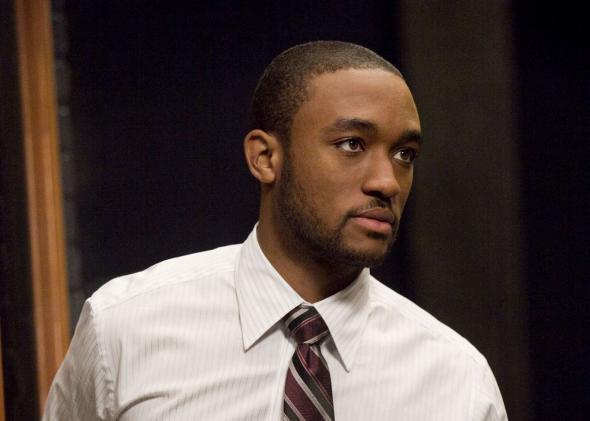Lee Thompson Young was just 13 when he was cast as the title character in the Disney series The Famous Jett Jackson. When that show came to an end after three seasons and a movie, he earned a degree at USC and worked consistently, including roles in the movie version of Friday Night Lights and several TV series. He was playing Detective Barry Frost in the hit TNT series Rizzoli & Isles when he committed suicide in August 2013 during the filming of Season 4’s penultimate episode. He was 29 and had been diagnosed with bipolar disorder.
The season finale was hastily rewritten to explain Frost’s absence by sending him on vacation. In the Season 5 premiere, which aired last week, Detective Frost met his demise in a car accident, and in tonight’s episode, the show commemorated Frost in a memorial ceremony. Slate spoke with Rizzoli & Isles’ new showrunner, Jan Nash, about how the creative team decided how to handle Young’s death.
Actors often disappear from shows between seasons, and their absence is sometimes left unmentioned or explained away quite quickly, so I wondered how you decided to deal with it this particular way.
When I realized that they had not actively dealt with it in the Season 4 finale, my own personal instinct was that it needed to be marked in some way. They had said he’d gone on vacation, and in a situation where an actor had died, that seemed less satisfying. When I met with [lead actors Angie Harmon and Sasha Alexander], it became very clear that what they wanted was to make sure that we dealt with Lee’s death in a way that was not just respectful to the actor and the role that he had filled in this company, but also to his character. The character needs to be memorialized some way, and if the character is going to die, then on a TV show that deals with crimes, you have two choices. One is to have it be a crime that you investigate. The other is that it is something tragic, that isn’t related to the procedural element of the show. It was very clear to all of us that we didn’t want there to be a blurry line between Detective Barry Frost’s death and whatever way we were going to treat that death. That leads you to him dying in a tragic accident.
We had one simple principle, which was to make sure that we were honoring Lee and the character of Barry Frost. If the people who loved Lee chose to see it, they would feel that we were honoring his memory.
Was there ever any thought of introducing depression, bipolar disorder, or even suicide?
There wasn’t, mostly because we wanted to be very careful that it didn’t feel exploitive. That might have been a case where real life would have been too close and would have made us uncomfortable, because it would have felt like we were exploiting this tragedy for dramatic purposes.
It was a really moving commemoration. The sense of loss really came across.
Thank you. That speaks to the depth of feeling everyone had for Lee. When you get to a certain age, everybody’s life has been touched by the loss of someone that is important to you. I’ve certainly had that experience, and the episode connects to feelings that I continue to have about some of those losses in a way that was soothing to me.
This interview has been edited and condensed.
